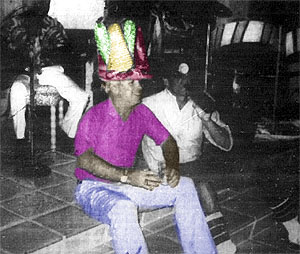Down Goes Toobz! Down Goes Toobz!
Where is Howard Cosell when you need him? The Hulk has been smashed by a guilty verdict on all counts in his corruption trial. This is good news for all those that have fought Stevens, Alaskan corruption (Palin is not really one of them either), and the GOP lions that have laid waste to the United States Senate for so long. From The Hill:
Ted Stevens, the longest-serving Senate Republican in history and patriarch of Alaska politics, was found guilty of all seven felony charges for making false statements.
The verdict could spell the end of a 40-year Senate career for a man who rose to be one of the most dominant figures in the upper chamber and who helped transform Alaska in its 50 years of statehood. The verdict was reached after the jury deliberated since Wednesday and found the 84-year-old senator guilty of failing to report more than $250,000 in gifts from Bill Allen, the former head of Veco Corp., and other friends.
Many have been convinced, since the trial started, that the prosecution was intentionally trying to dump the case. Yeah boy, the prosecution tried so hard to tank this trial that they convicted Stevens of all counts.
People may take joy in the verdict if they wish; personally I will take none. My personal distaste for Stevens and his politics, and desire to win his seat, is no match for my desire to have the rule of law followed, due process guaranteed to every defendant, and an honest prosecution with full disclosure and fairness shown to the defendant. Even Ted Stevens. All of those considerations were completely and heinously violated by this prosecution team. The consistent effect over the course of the trial was astounding and the cumulative effect disturbing.
This case should have been dismissed for prosecutorial misconduct before it ever reached the contaminated and bizarre jury process that led to this verdict.







